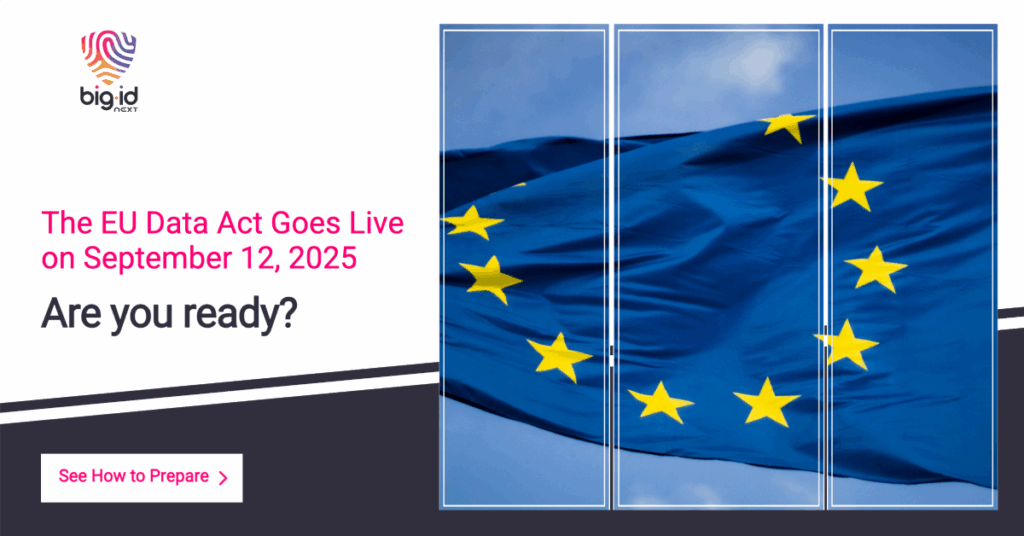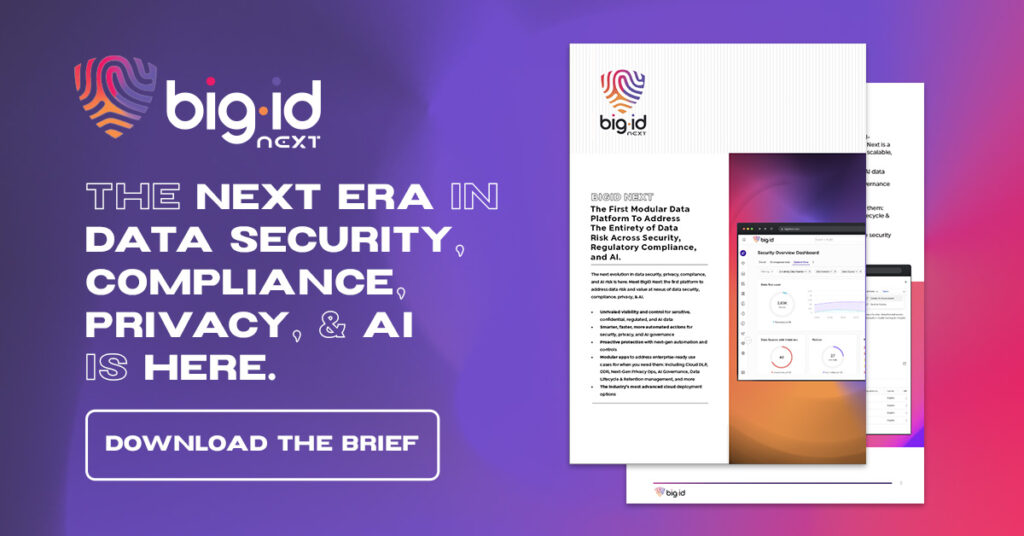The EU’s Data Act (Regulation 2023/2854) is a landmark initiative designed to reshape the European data economy. Although it entered into force earlier this year – 11 January 2024 – its provisions will become applicable on 12 September 2025.
While the Act is often summarized as a push for greater data accessibility and portability, its deeper impact lies in exposing a critical gap in how organizations govern data today. What was once discretionary – whether to share, how to share, when to share – is now a legal obligation. That shift introduces new operational complexity, new compliance risks, and a higher bar for transparency.
This isn’t just another regulation to check off a compliance list. The Data Act fundamentally alters how companies must perceive, manage, and leverage data. The real opportunity lies in turning this obligation into advantage: by strategically managing the flow of data, mitigating liabilities, and extracting new value from an open data ecosystem.
Key Provisions Taking Effect
- Access & Use of IoT-generated data: Businesses must provide data in structured, machine-readable formats.
- Switching & Interoperability: Cloud and SaaS providers must remove technical and contractual lock-ins—data must be portable within 30 days.
- Fair Contractual Terms: B2B contracts must be fair, reasonable, and non-discriminatory (FRAND).
- Public Sector Data Access: Governments can request data in emergencies, under strict safeguards.
- Protection Against Foreign Access: Prevents unlawful foreign access to EU data.
- Data Processing Transparency: Organizations must know how and where data is processed, and ensure processing aligns with access, portability, and fairness requirements.
Why This Matters — The Clock Is Ticking
With the Act entering applicability next week, organizations face immediate compliance obligations. Failure to act risks:
- Heavy penalties for non-compliance, especially for data portability or unfair processing terms.
- Operational disruption of data processing locations, flows, and formats are unclear.
- Competitive disadvantage for those unable to demonstrate transparent data governance and processing practices.
The pivot point is clear: robust governance tools are no longer “nice-to-have” enhancements. They are essential infrastructure for navigating this new legal and operational landscape.
How BigID Empowers Your EU Data Act Compliance
BigID helps organizations get control of the data itself – discovery, classification, processing, portability, and governance – so compliance becomes an enabler, not a burden.
1. Discover & Classify All Data
- Automatically scan structured, unstructured, IoT, and SaaS data.
- Identify which datasets fall under EU Data Act obligations (e.g., device-generated, customer-shared, or co-created data).
2. Govern Data Processing & Access
- Map where data is processed, by whom, and under what conditions.
- Detect cross-border data flows that may violate EU restrictions.
- Enforce policy-based guardrails to ensure lawful, transparent processing.
3. Ensure Portability & Interoperability
- Build accurate data inventories and lineage maps to support 30-day switching requirements.
- Generate ready-to-share datasets in structured, machine-readable formats without exposing sensitive or restricted data.
4. Enforce Fair Use & Contract Transparency
- Align processing agreements and B2B terms with FRAND requirements.
- Automate workflows to validate that shared data excludes sensitive elements (e.g., trade secrets, personal data) unless explicitly authorized.
5. Audit-Ready Reporting
- Deliver clear reports on what data is processed, how it’s accessed, and how it’s shared.
- Demonstrate compliance to regulators, partners, and customers—backed by real evidence.
Lead with Confidence — Act with Urgency
The EU Data Act raises the stakes: it turns data sharing from an internal decision into a regulated mandate. That shift makes governance both more complex and more critical. But it also creates an opening – to elevate governance from a reactive compliance exercise to a strategic advantage.
With BigID, organizations can transform the way they manage data: reducing risk, proving compliance, and unlocking new value in an era where the rules of data have fundamentally changed.
Organizations must be prepared to:
- Identify all relevant data being processed and shared.
- Ensure portability, transparency, and lawful access across cloud, IoT, and SaaS.
- Build an evidence trail to prove compliance from day one.
BigID puts you in control – across discovery, classification, processing, and portability – so you can act quickly, minimize risk, and lead with confidence.


